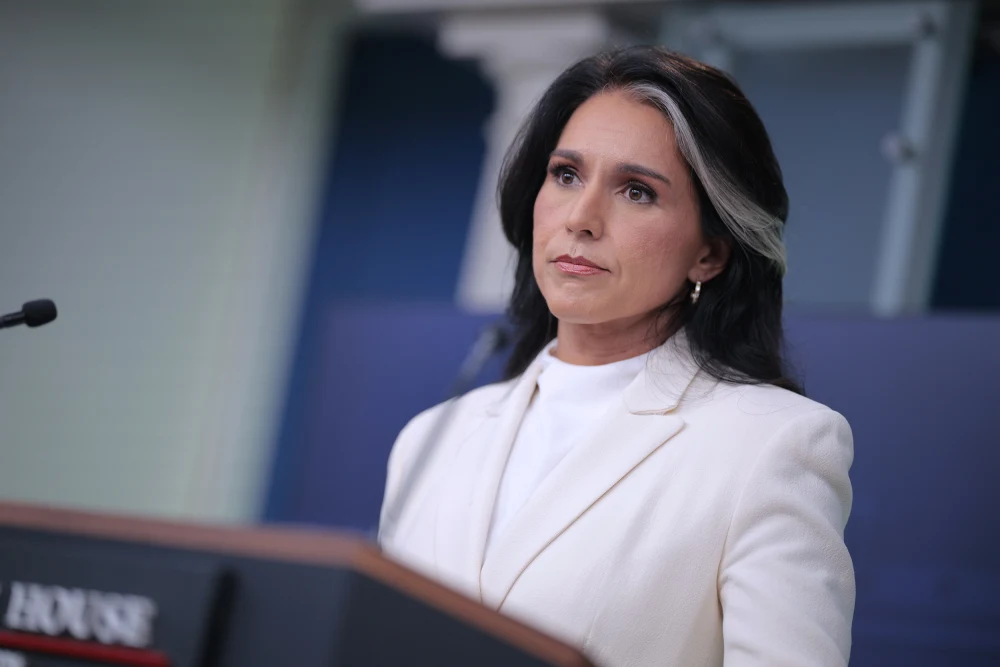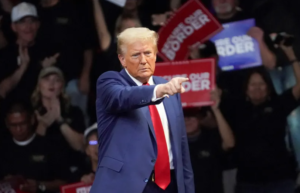Gabbard and White House Lying About Intel on Russian Interference: What’s Really Going On
Director of National Intelligence Tulsi Gabbard has ignited controversy by asserting that the Obama administration fabricated intelligence regarding Russian interference in the 2016 U.S. election. In a July 2025 release, she labeled the events a “treasonous conspiracy” designed to delegitimize Donald Trump’s victory.
However, these claims have met fierce pushback from former intelligence officials and bipartisan investigations, highlighting a fundamentally different narrative.
The Core of Gabbard’s Allegations
Gabbard’s July 18 report argues that senior Obama administration officials— including James Clapper, John Brennan, Susan Rice, and James Comey—manipulated intelligence to produce a false January 6, 2017, Intelligence Community Assessment (ICA) claiming Putin aimed to help Trump win.
She points to internal emails and memos from December 2016 indicating earlier IC assessments found no intent or evidence of cyber tampering with the vote infrastructure. At her request, a rewritten ICA was produced—but she claims it was political and fabricated.
Former Officials Strike Back
Retired CIA intelligence officer Susan Miller, part of the team behind the 2019 Mueller report, sharply rejected Gabbard’s narrative. She affirms the Russia interference findings were based on credible, corroborated intelligence—not political pressure. Miller argued:
“We definitely had the intel to show with high probability that Russia was trying to help Trump get elected.”
John Bolton, former national security adviser, dismissed the allegations as “baseless and exaggerated,” accusing Gabbard of playing politics rather than presenting substantive proof.
Established Investigations Support Interference Findings
Multiple bipartisan investigations—most notably the 2020 Senate Intelligence Committee report and Mueller report (2019)—confirmed Russia engaged in an aggressive, systematic effort to influence U.S. electoral outcomes in Trump’s favor.
While these assessments did not claim that vote outcomes were changed via hacking, they emphasized Russia’s intent to sway public opinion, using social media campaigns, cyber intrusions into DNC systems, and propaganda channels.
What the House Report Actually Found
The House Permanent Select Committee on Intelligence (HPSCI) oversight report, declassified by Gabbard, does note that veteran CIA officers warned against including unverified sources, such as the Steele dossier, in the ICA. CIA Director Brennan allegedly overruled those objections.
But far from rejecting interference, the report confirms the dossier and other questionable materials were incorporated despite IC concerns—and still supported the broader conclusion: Putin sought to influence the election. DNI
The Facts vs. Gabbard’s Narrative
| Claim by Gabbard | Fact Check & Expert Response |
|---|---|
| Intelligence was fabricated as part of a “coup” | Experts like Miller affirm the Russia interference intelligence was genuine, corroborated, and independently verified |
| ICA was entirely politicized by Obama appointees | Oversight found some analytic weaknesses, but no deliberate falsification of facts |
| Russia did not attempt to influence the outcome | Contradicted by both Mueller and Senate reports, which document Russian intent and action |
Why the Story Still Matters
The debate is significant: it debates whether intelligence assessments during a politically sensitive period were shaped by partisan agendas or grounded in genuine adversarial activity. Gabbard’s move has triggered investigations—most notably a DOJ strike force to review allegations and potential legal action.
Opponents argue her claims are deflective, especially amid unrelated controversies like the Jeffrey Epstein case, and pose threats by politicizing national security.
Gabbard vs. Accountability: What’s Next?
Despite intense criticism, Gabbard has doubled down. She submitted her declassified documents to the DOJ for criminal referrals and called for high-level investigations.
Meanwhile, public officials—including Sen. Mark Warner—have reaffirmed bipartisan confidence in prior IC findings and warned against misuse of intelligence for political gain.
Conclusion
While Gabbard’s allegations have sparked heated debate and institutional reviews, the preponderance of verified evidence—from Mueller, Senate, and IC sources—affirmed that Russia interfered deliberately, but did not alter vote results. She raises concerns over analysis quality and selective inclusion, but does not undercut the core findings.
Subscribe to trusted news sites like USnewsSphere.com for continuous updates.





